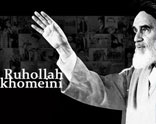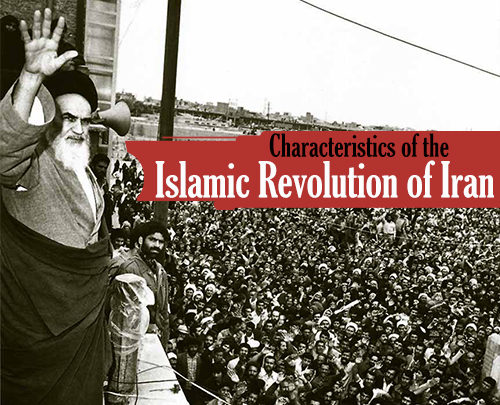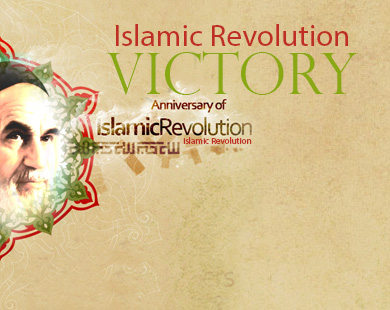Imam Khomeini clearly realized that theology was getting in the way of history.
He set about to redress the balance between history and theology. In Islamic
literature of all schools of thought, history and theology had got mixed.
Muslims had developed the almost fatal habit of writing history as theology. The
two had to be separated, specially in the Shiite school of thought where the
absence of the Twelfth Imam had been used as an excuse for opting out of the
historical process. In a sense all ijtihad by the usuli ulama over 200 years was
concerned with de-freezing history out of the freezer of theology. Imam Khomeini
arrived on the scene at a time when history was ready for a final assault on its
wayward ways.
The Imam's last testament (wassiyah) is a masterpiece of restatement of his own
position within the Shiite school of thought, and a masterpiece of his statement
on the arena of history which unites all schools of thought in Islam. Imam
Khomeini treated history as an impartial factor in the progress of time.
Theological purity was no guarantee to historical progress. History is
intolerant of all degrees of perversion of the truth. Truth is also a historical
reality, not only an abstract spiritual statement. A failure to compare actual
facts with the promised and desired goals leads to erosion of morality and false
claims to success and supremacy. History is contemptuous of those who indulge in
this type of self-deception. A great deal of behavior of the modern Islamic
politicians is of this kind. Bureaucracies do almost nothing but indulge in self
justification and self preservation. With the passage of time history develops a
profile of deviation and half-truths and converts them into hard facts.
Imam Khomeini understood these inalienable characteristics of history on the
widest possible canvas of time. But even in this short period since the Islamic
Revolution this pattern of historical development can be traced and understood.
The election of Bani Sadr to the presidency, the conduct of the war, the role of
the liberals, the bureaucratic logjam and inefficiency, the episode of Ayatullah
Montezari's nomination and denomination, the failures of foreign policy...are
all examples of history taking its revenge. Any attempt to hide behind theology,
or to rewrite theology to fit uncomfortable facts, will be the shortest route to
destroying the legacy of Imam Khomeini.
When in 1988 Imam Khomeini had to accept a ceasefire in the war with Iraq, he
called it a "cup of poison," but he did not defend the decision in terms of
theology.
This was his unique taqwa. The courage to take responsibility for one's own
actions is, or must be, part of taqwa. It is taqwa that is the essential quality
of leadership, State and politics. This must mean that competence is part of
taqwa. An incompetent man can also be muttaqi, provided he knows the limits of
his competence. But to attempt or insist on performing a role above one's
competence is the opposite of taqwa; the person concerned may be a small
official or a mujahid or even a marja". On these issues Imam Khomeini was clear
and made no compromises.
Imam Khomeini also realized that the processes of history must unite the Ummah.
Anything that divides the Ummah or is an obstacle to unity could not be
desirable in Islam. He found and defined the common ground on which the Ummah
could stand, especially in the global struggle with the powers and agents of
kufr (Disbelief).
Many of his speeches and his annual messages to the pilgrims were designed to
achieve this goal. He saw Hajj as the obvious arena for the exposure of nifaq
(Hypocrisy) in the Ummah. For him Hajj as worship ("ibadah) was not enough; Hajj
was the ultimate expression of the power of Islam. This is why he made Hajj and
the liberation of Al-Quds central to his thinking. These are issues on which the
Islamic State cannot negotiate in the diplomatic arena. These are not subjects
for diplomacy. Imam Khomeini restored jihad to the top of the agenda of the
Ummah.
In short, Imam Khomeini was an ocean of new insights into Islam in its totality.
Any attempt to limit him and his relevance to Iran, or one school of thought in
Islam, would be a great injustice to him, to Islam and perhaps also to Iran.
* Glossary
Ijtihad: Independent legal judgement on issues not settled in the Qur"an or by
the precept, the example and saying of the Prophet.
Ummah: The world community of Muslims.
Usuli: One who follow the usuli school of thought among Shiite Muslims.
Ulama: Scholars of Islam
Taqwa: Faith in God, commitment
Muttaqi: one committed to the path of God
Mujahid: one who takes part in Jihad (see Jihad)
Marja": a "Grand Ayatullah" who is considered worthy of emulation
Kufr: Rejection of belief in God
Nifaq: hypocrisy, dissimulation or dissemblance
Jihad: any kind of struggle to promote or defend Islam or Muslims


















